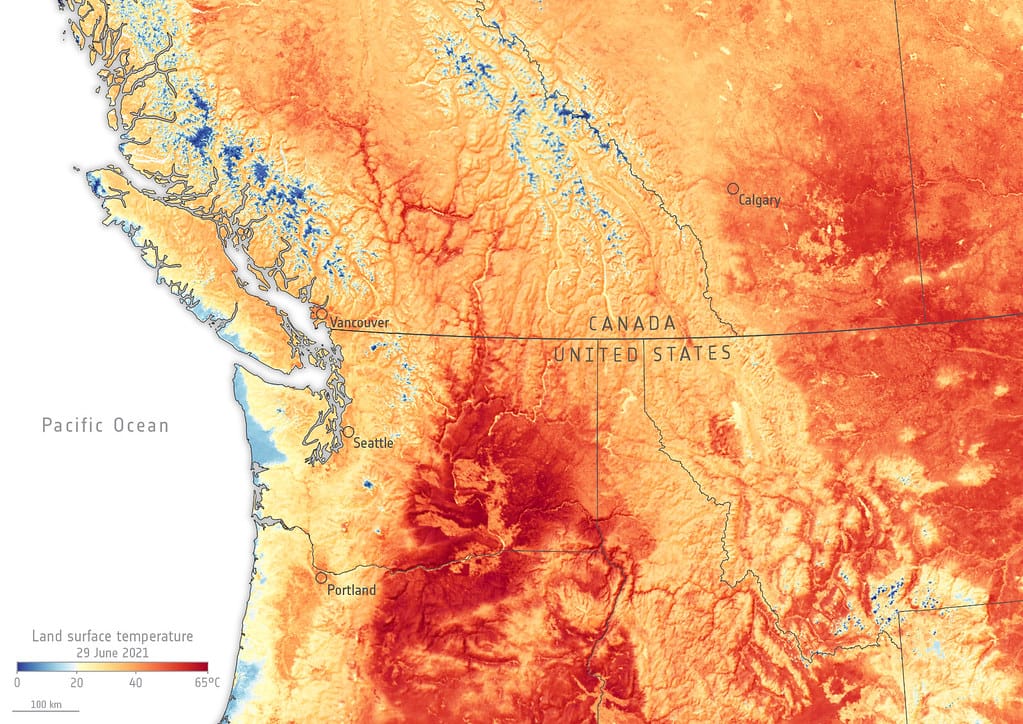Western Europe Swelters Through Record-Breaking June as Climate Crisis Intensifies
Western Europe is reeling from its hottest June on record, with temperatures soaring well above seasonal averages and triggering widespread heatwave warnings across the continent. The unprecedented heat has shattered decades-old temperature records, forced school closures, and raised urgent questions about Europe's preparedness for an increasingly volatile climate future.
Temperature Records Tumble Across the Continent
The European Union's climate monitoring service, Copernicus, confirmed that June 2024 marked the highest average temperature ever recorded for the month across Western Europe. Countries from Spain to Norway experienced temperatures consistently 3-5°C above the 1991-2020 average, with some regions seeing spikes of up to 8°C above normal.
France bore the brunt of the extreme conditions, with temperatures reaching 42°C in Lyon and 41°C in Paris – the highest June temperatures ever recorded in these cities. The previous record of 40.6°C in Paris, set in 2019, was surpassed by a full degree, demonstrating the accelerating pace of climate change impacts.
Germany wasn't spared either, with Berlin recording 38°C and Munich hitting 37°C, both unprecedented for June. Even typically temperate regions like the Netherlands and Belgium saw temperatures climb above 35°C, forcing authorities to issue red-level heat warnings.
Infrastructure Struggles Under Extreme Heat
The sustained high temperatures have pushed European infrastructure to its limits. In the United Kingdom, rail services faced significant disruptions as steel tracks began to buckle under the intense heat. Network Rail implemented speed restrictions across major routes, causing delays and cancellations that affected hundreds of thousands of commuters.
Spain and Portugal activated emergency cooling centers in major cities as energy grids strained under record electricity demand from air conditioning systems. Peak power consumption in Spain reached 41,000 megawatts, the highest June figure in the country's history.
Healthcare systems across the region reported increased hospital admissions for heat-related illnesses, particularly among elderly populations and those with pre-existing conditions. France's health ministry issued urgent guidance to regional hospitals to prepare for potential heat-related emergencies.
Agricultural and Environmental Consequences
The extreme heat has had devastating effects on European agriculture. Farmers in southern France reported significant crop stress, with vineyards implementing emergency irrigation measures to prevent grape damage. In Spain, wheat harvests are expected to decline by 15-20% compared to last year due to heat stress and associated drought conditions.
Water levels in major European rivers have dropped to critically low levels unusually early in the season. The Rhine River, crucial for European commerce, has seen water levels fall by 30% compared to June averages, potentially affecting shipping capacity during peak summer months.
Forest fire risks have escalated dramatically, with Portugal and Spain already battling multiple blazes. The European Forest Fire Information System reported that the burned area in June exceeded the 15-year average by 280%, signaling what could be another devastating fire season.
Climate Scientists Sound the Alarm
Leading climate researchers emphasize that these extreme temperatures align with long-term climate projections but are occurring faster than anticipated. Dr. Sarah Mitchell from the European Climate Research Institute notes that "what we're seeing in Western Europe represents a clear acceleration of climate change impacts, with record-breaking events becoming increasingly common."
The World Meteorological Organization has linked the extreme heat to a combination of human-caused climate change and natural weather patterns, but stressed that the underlying warming trend makes such events more likely and more severe.
Looking Ahead: Adaptation and Resilience
The record-breaking June temperatures serve as a stark reminder of Europe's vulnerability to climate change and the urgent need for comprehensive adaptation strategies. Cities across the region are already implementing heat action plans, expanding green spaces, and retrofitting buildings to better cope with extreme temperatures.
As Europe enters the peak summer months, meteorologists warn that the current heat pattern could persist, potentially leading to even more severe conditions in July and August. The unprecedented June temperatures represent not just a weather event, but a preview of Europe's climate future – one that demands immediate action on both emissions reduction and climate adaptation to protect communities and ecosystems from increasingly severe heat extremes.
